You have to have had your head deep in the sand lately to not be aware of the stream of drastic policy changes coming out of Washington — many of which have reverberated far and wide. Indeed recent changes in the approach to foreign aid have severely impacted conditions on the ground in many of the world’s least developed countries — in areas such as disaster and famine relief, potable water infrastructure, and disease prevention and treatment. Not only have programs that for years had been underwritten by the U.S. Agency for International Development (USAID) been cut, but foreign aid more broadly has been halted via executive orders, including one that specifically targets South Africa. And we have already felt the effects here — right down to the grass-roots level. Perhaps it is not widely known how much Peace Corps and USAID have collaborated through the years — with USAID funding and infrastructure having given key support to volunteers working in areas from health to education to agriculture. Indeed, my previous experience as an agro-forestry volunteer in the drought-stricken Sahel region was enabled through a USAID-backed reforestation initiative.
But what about today? One of the most striking effects has been the cessation of much of the vital work carried out by the President’s Emergency Plan for AIDS Relief (PEPFAR). Indeed, on a recent walk I was stopped by a local resident who lamented the loss of her job as an HIV/AIDs prevention specialist. She seemed to accept my explanation that I was effectively powerless in the matter, and we both agreed to stay positive and hopeful. PEPFAR has been widely lauded for its success in the campaign to fight the HIV/AIDs epidemic (in addition to other diseases), having saved innumerable lives in Africa through its 20-year existence. Now, however, most of its activities — specifically those targeting prevention and education — are grounded. Peace Corps volunteers in all sectors (but foremost health) have been instructed explicitly not to broach these subjects in their work, and much of the funding that has supported their efforts (awareness campaigns, community events, materials procurement and publicity) has disappeared — making life difficult given that HIV/AIDS prevention and education is the crux of their work, their raison d’etre. However, in spite of all this, health volunteers continue to show resolve — to keep serving their communities in whatever ways they can — regardless of what tools might be missing from their bags.
Such cuts have been felt by educators as well: support for technology, classroom and library improvements and extra curricular activities used to be available though locally administered USAID grants. In fact my school had a proposal in the works to bolster its modest collection of teaching materials — including books, binoculars, laminators and a color printer — when the axe dropped. Alas, this will not happen anytime soon; we will continue to trudge along as we have been. Resourcefulness has and will always be a necessary attribute in Peace Corps volunteers and part of the fabric of rural South Africa. As I mentioned in a staff meeting recently: it’s inspiring to see this trait playing out at our school as teachers go about coming up with innovative, if not fancy or trendy, solutions to meet the day-to-day needs of their classes.
Rumors abound
Recently these challenges have been overshadowed by a pall of rumor and speculation emanating from back home. Yes, the news outlets and blogosphere have been abuzz with scenarios, conjecture, tales of woe and general gloom. And amid such pervasive clatter it can be hard not to become distracted — especially as this has coincided with a break from school and the day-to-day intensity that goes along with it. But as our Country Director (herself a long-time veteran of Peace Corps’ volunteer and administrative ranks) stated recently: “At this point, focus on your work and what you can control. It is the only thing we can do.” Her message is as wise and true as it is simple. I would add to that: stick with your passions — continue doing what takes your mind away and makes you feel free and alive — whether that means attending local events; working on your chess game; training for a marathon; tackling Joyce, Faulkner, or Conrad; immersing in Netflix; cuing up John Prine; chasing that elusive blue crane; baking chocolate chip cookies; or just sitting under the lemon tree listening to the cow-bells. Whatever happens will happen; but regardless, your sanity and spirits will be intact and you next opportunity on the rise.
One of the things that two stints in Africa has taught me is how to face tribulations with grace, resiliency, and patience. The other day I spent five hours to travel 130-kilometers — a pace that would have sent many of my compatriots, including my late father, up the wall and probably back down again. The journey started with a ride-share and continued with a traipse through a crowded market; a long wait at an open-air bus station; a clamorous scene loading the bus; a late departure; a steamy coach teeming with passengers, vendors, luggage and sacs of produce; and innumerable stops on the circuitous ride through the rainy Transvaal. The journey was finally concluded after having lugged three loaded bags through the dark from the bus stop to my door. But through it all there was hardly any complaining, peering at watches, groaning or sighing; people realize that there’s no use in resisting or wasting their energy on something that they cannot control. Everyone got home fine, Saturday came as it does, the weekend was at hand, life went on — and I guarantee you that I’m the only one writing about it.
Scenes like this play out all the time. But so do those of a much more serious nature: rampant under-employment, theft of property including herds of cattle, and I wonder how many families around here haven’t lost a young relative or two to an accident, violence, disease or other untimely death. Indeed the widowed matriarch of my host family has lost two of her direct descendants and remembers them daily as she cares for her disabled adult grandson. In the face of such tragedy and tribulation, who can afford to dwell on the past and the little things? For the maize and the beans are growing, the oranges ripening, the pomegranates yielding, and the grandchildren are needing to be fed. Regardless of what may be happening in government offices and distant capitals, life goes on and it will continue to do so — with whatever permutations it may bring — well beyond the next four years.







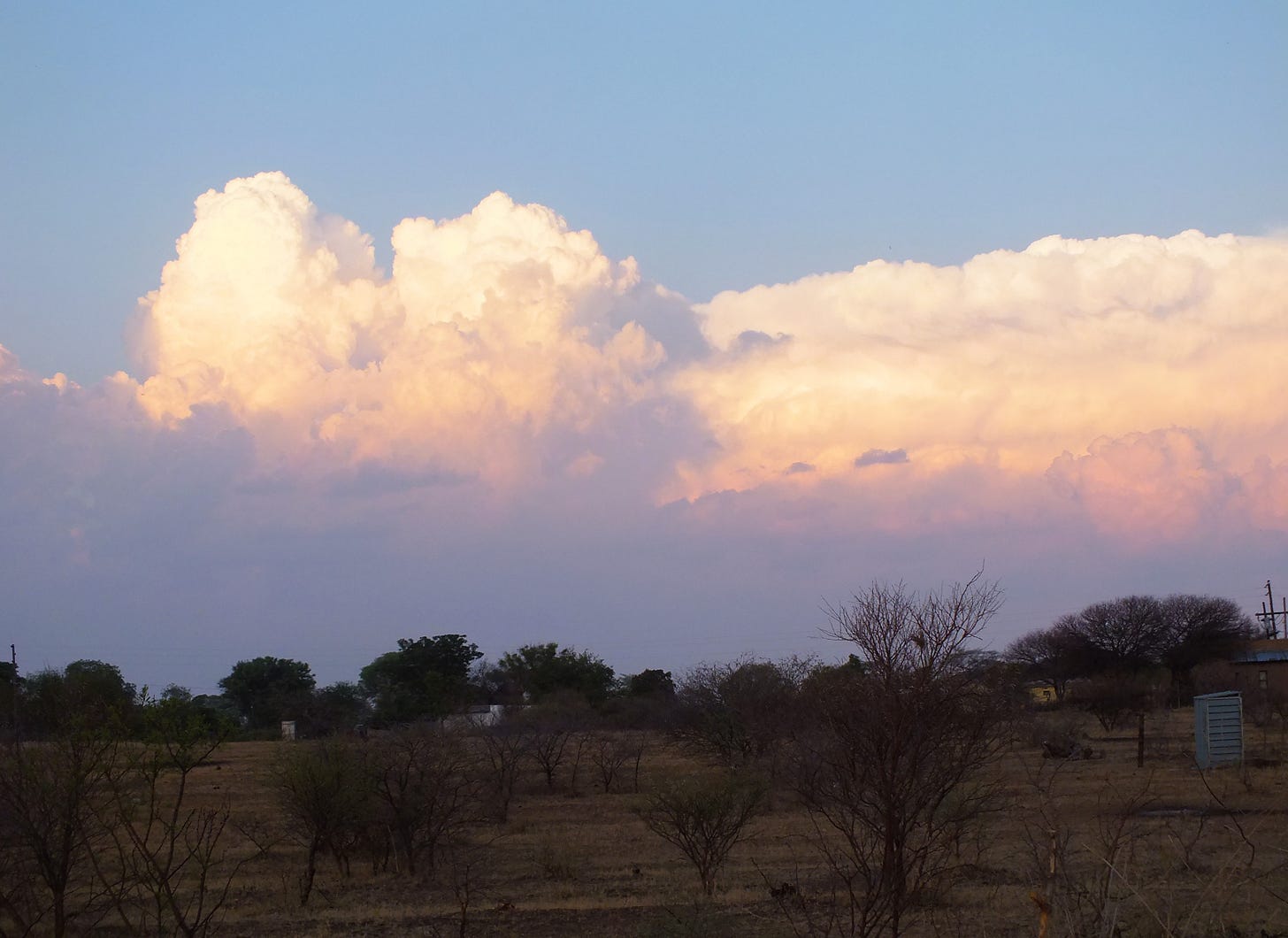
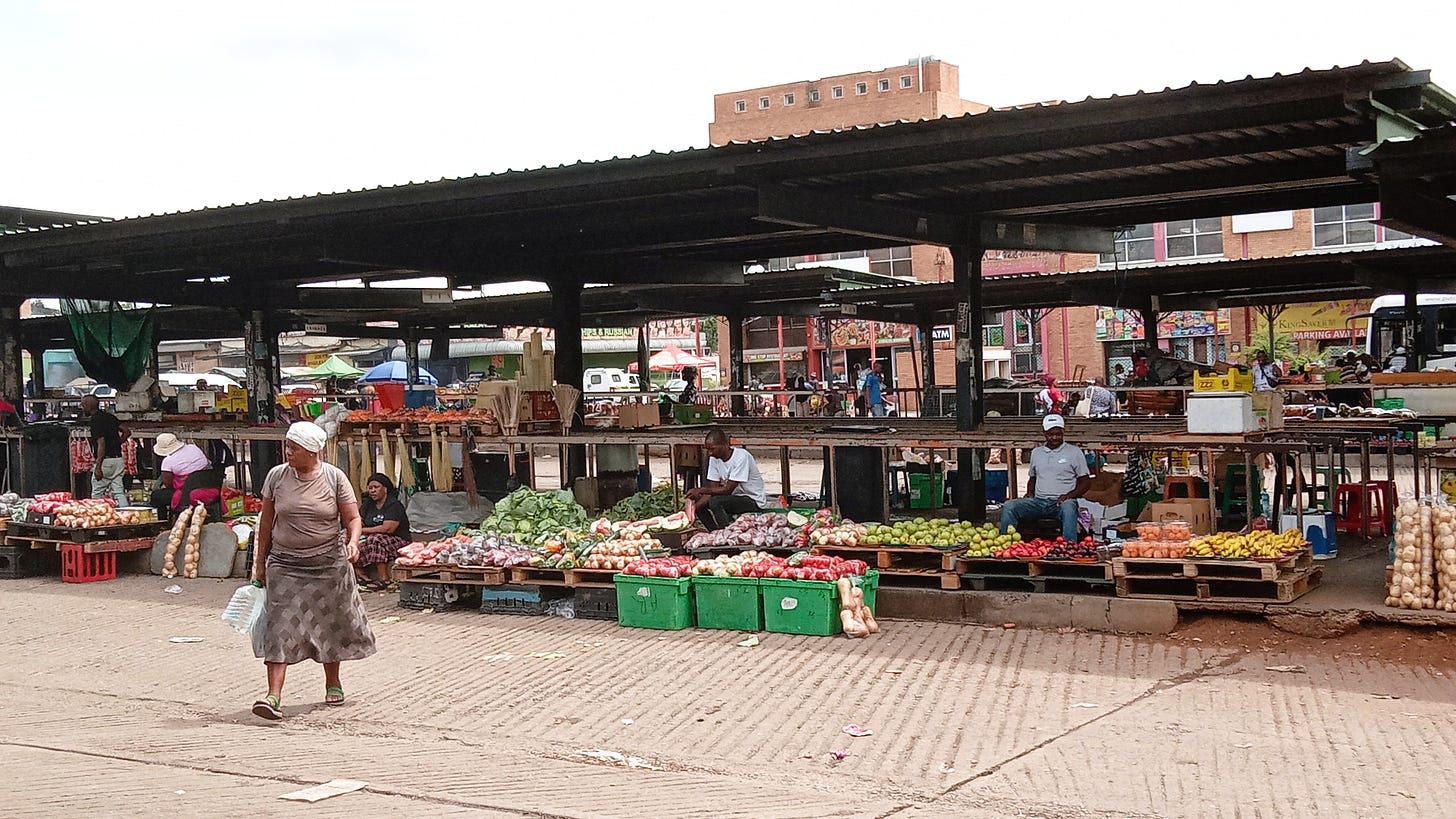

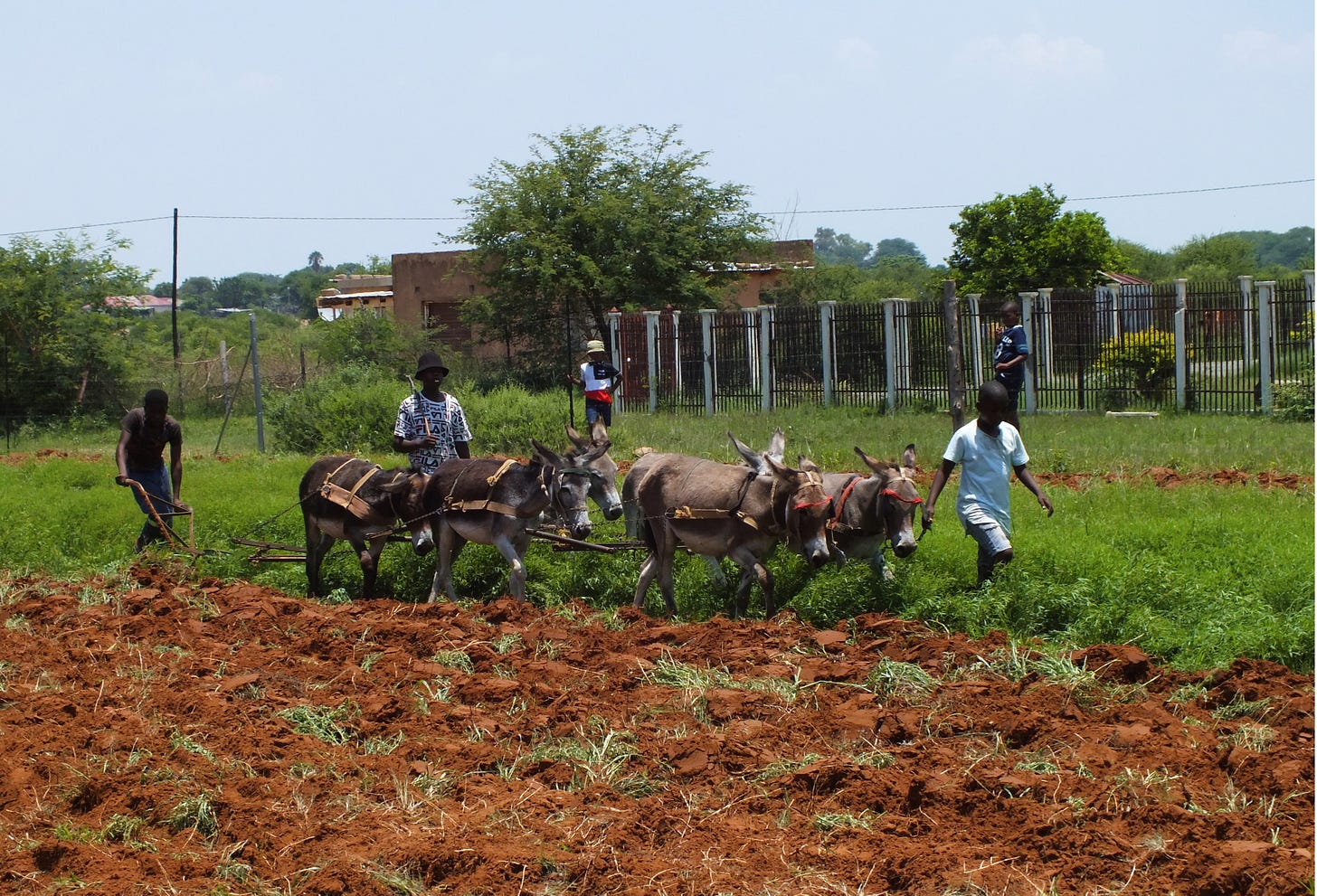

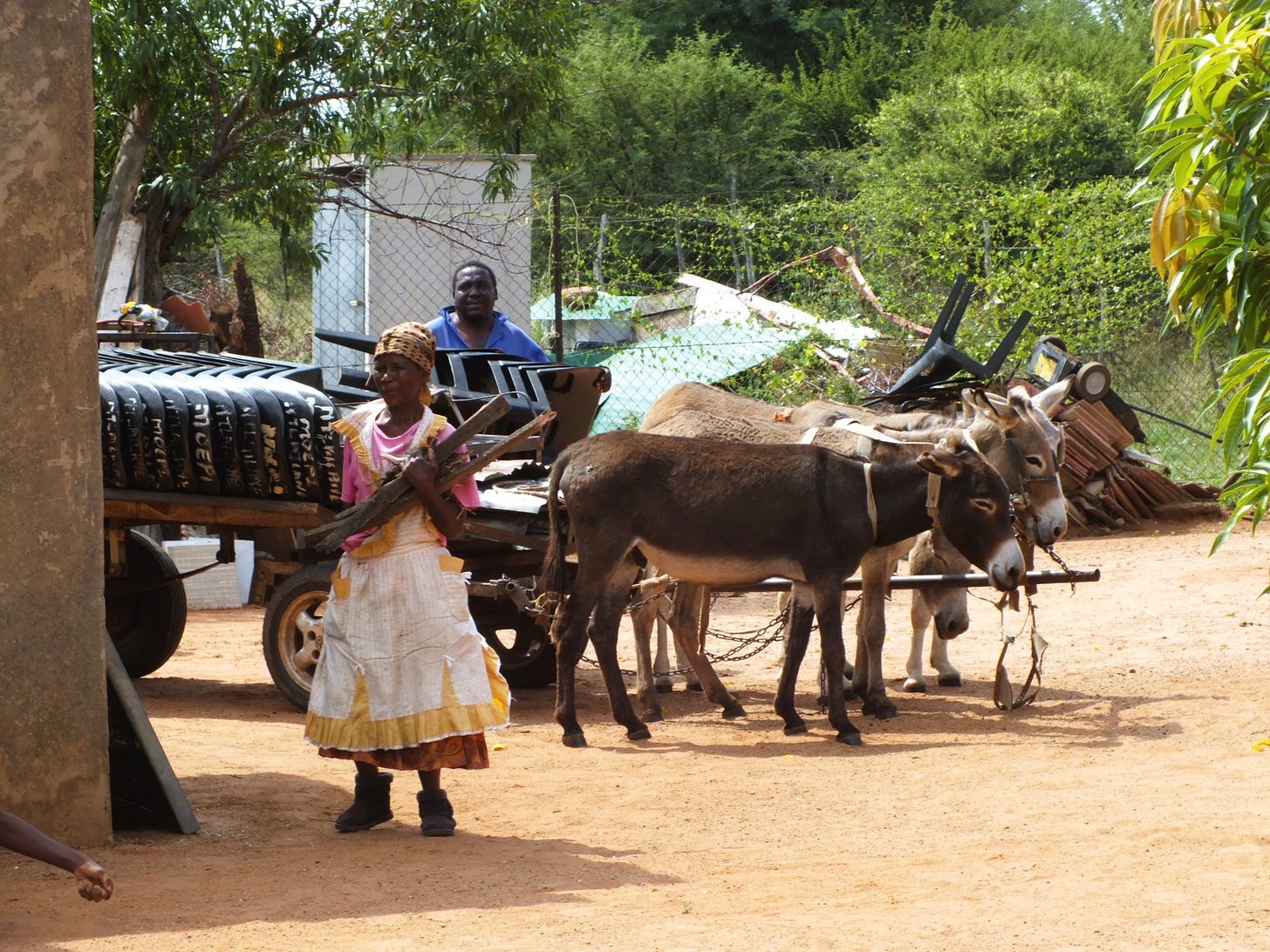

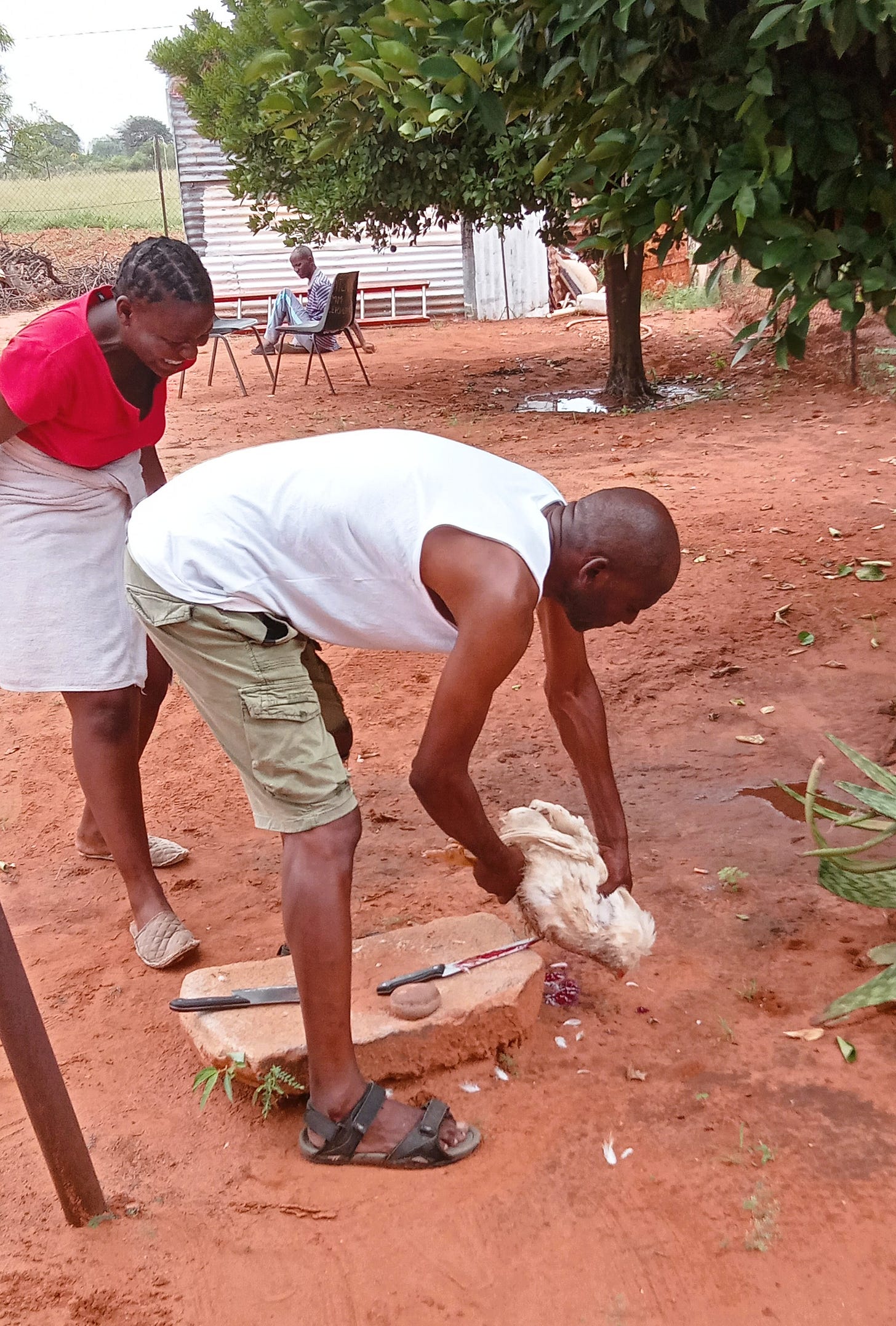
Happy Easter. there's good news out of DC. Ovechkin just past Gretzky in all-time goals. Caps vs Canadiens in Round 1.
Drew: Thanks for that inspiring reflection, and God bless you.
Roger Bolton